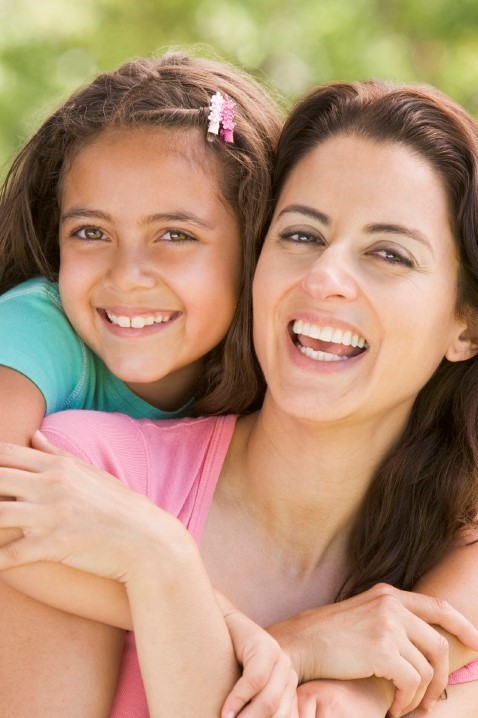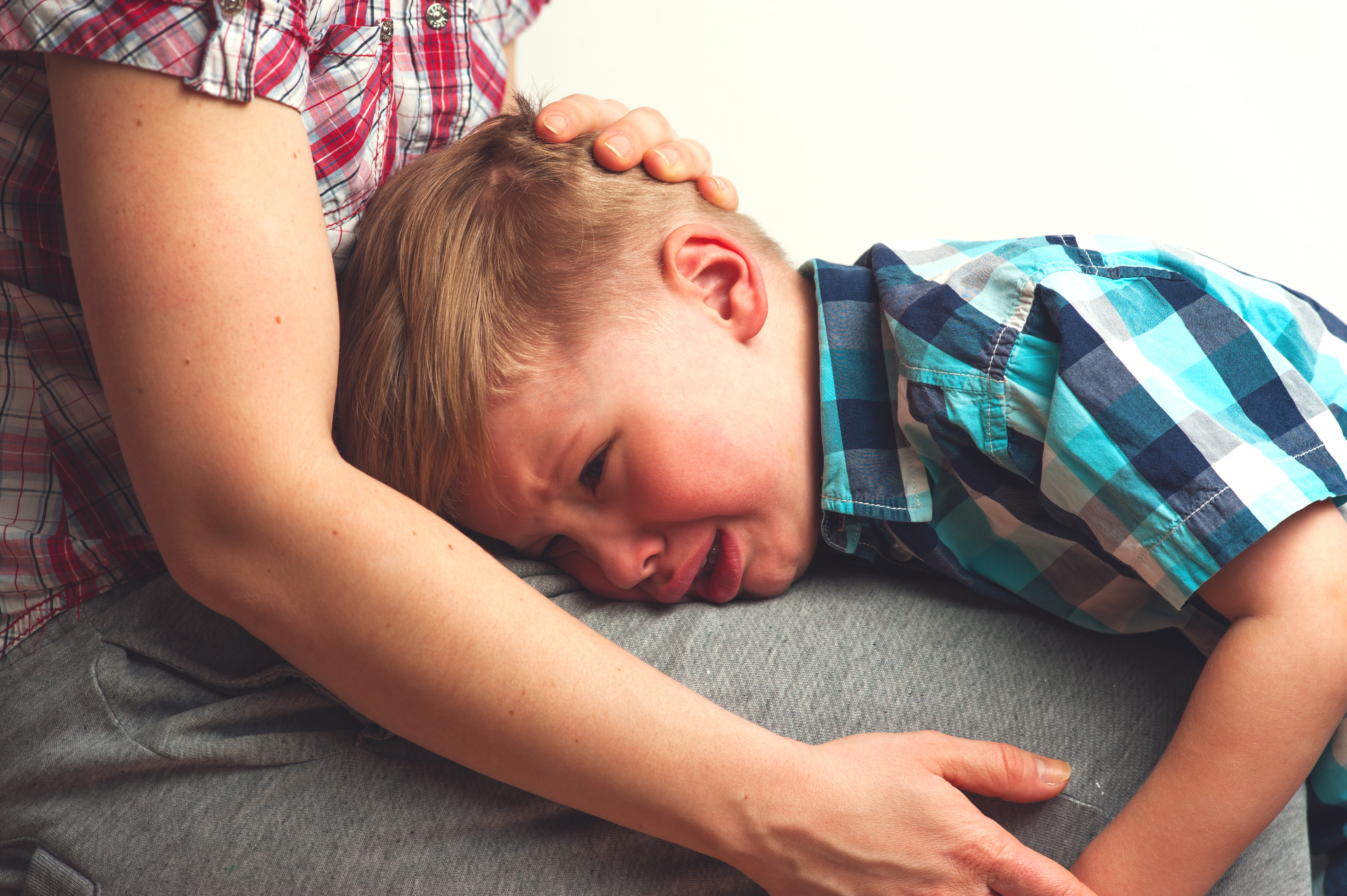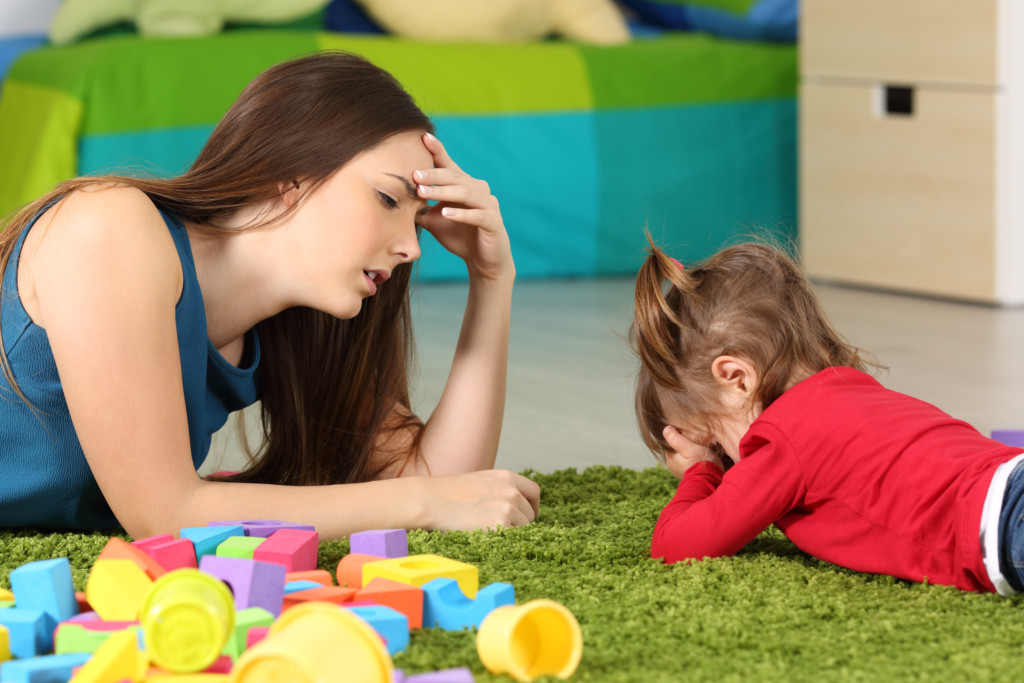 Written by Genevieve Simperingham and originally printed in The Natural Parent magazine.
Written by Genevieve Simperingham and originally printed in The Natural Parent magazine.
When we’re the least successful in being the parent that we want to be, that’s usually when we most need to be kind and compassionate towards our self. When we snap at the kids, raise our voice, give those lectures that make us cringe and when we struggle to listen attentively to our child’s feelings; this is generally symptomatic of our emotional tanks being near empty. Parenting requires immense physical, mental and emotional holding. And parents also need to feel held.
Without a good balance of feeling held and supported as we hold our child, tensions and frustrations can mount, and even threaten to overwhelm us. Being self-critical doesn’t help; in fact it increases our stress greatly. But we can start to dissipate some of our tensions when we view our impatience with our child as a cue to give loving attention to our feelings and carve out the time to meet some of our own needs.
Yet most parents find it hard to be more kind than critical towards themselves when they struggle? “Life ain’t fair, get used to it”, “no point in wallowing”, “you’re your own worst enemy”, “you shouldn’t reward a child’s bad behaviour with positive attention” are the kind of messages that many of us grew up with. Unless challenged, these kinds of beliefs can cause us to feel overly critical towards ourselves when we don’t manage to live up to our expectations and ideals and when we make mistakes. It’s a big ask to expect ourselves to generously apply tolerance, patience and support to our children through their mistakes and struggles, when we carry an ingrained belief that we don’t ourselves deserve empathy and support when we fail to be the “perfect parent”. But it is so important to be just as patient and kind towards ourselves as we aim to be for our children.
It can be helpful to compare emotional needs with physical needs. When your body is hungry and thirsty, you may start to feel weak, irritable and headachy. If you reward your body with food and water, are you encouraging your body to be weak, irritable and headachy? When you notice that your plants aren’t performing very well, do you deny them water for another day to motivate them to flourish, or do you aim to meet the needs in the trust that when the plants are nourished in a mindful and balanced way, they will flourish. Likewise, when you nourish yourself with self-empathy, compassion and actions that meet your emotional needs, you are fostering emotional health and balance that ultimately benefits the whole family. To joyfully nourish our child, we all need to feel nourished.
Being kind and compassionate towards ourselves reduces stress, guilt and shame and lightens our load. Self-compassion tends to lead us on the journey back to balance, back to parenting with more peace and confidence.
I can identify many interesting patterns with the parents I work with. I notice that when parents have worries about finances, health or increased arguments with their partner, the extra stress compromises their ability to be truly present with their child. These are valid contributing factors. For many parents, the higher the pressure, the more self-critical a parent becomes. And the more self-critical a parent becomes, the more inclined they can be to hide their struggles and hence the harder it is to reach out for the support they need.
When pressures mount, it’s also harder to keep on top of the housework, or for some keeping control of the housework borders on compulsive at the expense of all else. Stressed overloaded parents can easily tune out of their child’s inner world. Exhausted parents find it harder to be patient and can be more reactive. Parents who feel unsupported and misunderstood can become less approachable as tensions replace warmth in their relationship with their child. The fact that most parents feel a lot of shame when they struggle to be a calm and patient parent reflects the high expectations and harsh judgements towards parents and children in our society. Although I see lots of evidence of this changing for the better, overall I believe most people still live in an empathy deprived society.
One of the points in my parenting journey when I struggled the most was when my second child was a baby. I remember well the shame and humiliation I felt around struggling and often failing to keep all the ball’s juggling. My older child was suffering the loss of the very available and cheerful mum that I’d previously been to him. He was hurting and he was understandably angry. It was a daily struggle just to cope. I was forced to confront my super strong and sorted persona that I presented to the world when I felt shaky. If I was to gain the support and the empathy that I was desperate for, I knew I had to swallow my pride and show my vulnerability.
I painfully started to practice being honest with people who asked “how are things?” I would first give the automatic “good” or “not too bad” and would then pause and nudge myself to tell my friend or family member that I wasn’t good at all, that I was in fact really struggling. My husband was away from home with work nearly all the time, but even in the little windows of time that I saw him I would again push myself to be more honest about how difficult things were and I asked him to also be honest when he bumped into friends and they asked about myself and the kids, at least with our closer friends.
I wished people just knew how hard things were and would reach out with empathy, and without judgement, without having to tell them how fragile I felt. Yet each person is busy in their own world with their own struggles and needed some information and permission if they were to support us. This whole process of exposing my very sore internal state and reaching out felt like the emotional equivalent of labour pains as I didn’t grow up in an environment where it was ok or safe to show feelings and needs. In challenging my out-dated beliefs that associated struggle with shame and needing others with weakness, I formed some much healthier beliefs like some of those that I share in this article. It was very healing and encouraging to discover that not everybody runs a mile when you show that you’re hurting. I retrospectively really value growth edges such as these on my parenting path and touch back often on the awareness I gained as I support friends or clients who have similar struggles today.
All parents go through times that are more challenging than normal for a variety of different reasons. When being self-critical, a parent can put themselves under pressure to just do better, just stop yelling, just stop feeling sorry for themselves, just get organized, just stop eating the wrong foods, just decide to do more exercise, just be a peaceful patient parent. It’s a lot of pressure to put on oneself. These are the times when a parent needs to draw on the internal and external resources that will meet their needs, that will help them survive and grow through their challenges. Perhaps they need quality connection with another adult, to receive empathy and understanding, perhaps stress release through exercise, meditation, relaxation, time in nature, journaling or a big cry. Perhaps the soothing of a hug or reassuring words of encouragement, a parent may need more information about their current challenges, maybe more fun and laughter is critically needed, and the needs can be the simple but essential ones like food, rest or sleep. But at challenging times, there’s usually a backlog of unmet needs.
As much as we ourselves need it, our children also need and deserve for us to do the big work of coming to peace with ourselves. Coming to peace with ourselves includes forgiving ourselves, and that’s easier said than done for most! It can be easier to feel bad towards ourselves than kind towards ourselves. Yet it’s our responsibility as parents to maintain a soft heart. The more we come to peace with ourselves and our whole range of feelings, including the messy ones like resentment, rage, jealousy and utter confusion, the closer we get to developing a kind soft heart capable of true compassion towards our child and our partner. In developing a soft, kind-hearted feeling towards ourselves, we can then draw on that heart energy when our child needs our care and compassion. When we can speak from a soft kind heart, our child can see, feel and hear our care and compassion for them.
When we work to observe and notice the quality of connection that we’re giving to our child, we will know if we’re more open or more closed, more soft or more hardened. We can’t always open our hearts like flicking a switch, sometimes the heart can feel very heavy and sore, but it is very valuable to be mindful of this quality in our relationship with our child. When our heart isn’t open to our child on a particular day for whatever reasons, we can expect our child to be more clingy, more unsettled, perhaps more defiant or angry. Again, we may not be able to change our state as fast or as well as we’d like, but it is very helpful to be aware that this is why our child’s needs are extra high. And often our increased understanding of how our feeling towards our child affects them can afford us increased tolerance and patience towards our child’s difficulties.
For most of us, myself included, there’s a huge contrast between how we were parented and how we parent our children in the present. Because of this contrast, most of us carry two sets of conflicting older beliefs and newer beliefs about parenting. In challenging situations, parents often experience a battle between the older conditioned beliefs and the newer beliefs. Spurred by our older beliefs, we may respond to our child with thoughts such as; “he’s not going to get away with acting like that, he knows well that he shouldn’t act like that and he’s just being selfish and inconsiderate, he needs to understand that the world doesn’t revolve around him and that it’s time he made better choices. Being nice to him gets me nowhere.” Whereas, from our newer beliefs, we may respond to our child’s out of balance behaviour with thoughts such as; “he’s really stressed and he needs my help not my criticism. He’s doing his best, but he can’t think straight when he’s feeling overwhelmed with frustration. He needs for me to become calm and reasonable, he needs to feel that I’m on his team and helping him face and resolve his problems rather than criticizing him and causing him to feel even more overwhelmed and stressed. He deserves to be spoken to respectfully and to feel supported before he can participate more cooperatively.
Children can’t deal with our blocks, inhibitions, wounds or fears, they just know what they need, they just need what they need and are driven, despite their fears of rejection, to seek their needs from us. So, whether we think we can rise to the challenge or not, our children keep pushing us to show them love that is bigger than our pain and their pain, our inhibitions and their inhibitions. They keep pulling on our heartstrings and challenging us to care, to hear, to listen, to empathize, to accept, to just love them no matter what, to keep opening our heart to them through it all, to keep repairing the heart connection again and again.
Being the hero is about finding the courage to love deeply and unconditionally, to keep returning back to opening our hearts every time we shut down and want to hide away in our smallness, even though we want to protect our sore places by putting up those walls and conveniently blaming others for not wanting our love or not trusting us. When our children fight us and push us away, they’re often protecting their sore places, but they do want and need our love, always, but they want the real thing, the clean love, the love without conditions; they need unconditional love. When we find what it takes in us to really love our child unconditionally, even through conflict, even in the face of their rejection, this is when we really start to grow up and be the adult, this is what heals us, this is what repairs broken hearts.
Our children literally resonate with us. They’re downloading our state all the time; our emotions, our beliefs, our values. Their stress rises with ours and comes down with ours. When we smile with them, play with them, laugh with them, kindly care for them, the sun shines brightly in their world and starts to melt the cold scared places inside them, their experience of life becomes full of fun, magic and happiness again.
Not only is it not selfish to care for your emotional needs, to find ways of reducing your stress, to access more support, more comfort, more kindness and empathy for your struggles, these are responsible mature proactive choices that bring more balance and support to you and hence your whole family system. ♥ Genevieve









This is the most beautiful article.
Thank you so much. I feel I am in a constant battle between my old conditioned beliefs and my new ones. In forging the path and retraining my brain to go down the newer route I’m gradually finding that the old path is becoming more overgrown. I’m starting to feel more comfortable with my new beliefs. They are coming more naturally to me. I’m feeling less anger and resentment. I’m feeling more compassionate and able to show empathy to my beautiful children. But not only to them; to my husband, my parents, my friends.
Thank you for this post and your encouraging words. You have no idea how much they are continuing to positively influence my life and the lives of my children.
Dear Genevieve,
thank you very much for your heartfelt article! I find your work so important and I would love to contribute with some personal insights, which help me to come to sustainable healing and a healthy connection with myself, which automatically includes a healthy connection with others, especially children, as they always feel intuitively where we are coming from.
I do work with the “inner child” of adults ( coming from a big own need) , as most of us carry the little one and its unresolved problems, not even knowning, that we do and what we do. I agree with many of your thoughts and experiences coming from similar experiences. In difference to you, I made one important discovery:
Children ARE ABLE to cope with our feelings, they are not able to cope when we try to hide them or try to be better than we can in this moment, as they feel them anyway. They like us being authentic with our feelings, even when we are not balanced all the time.
I have two wonderful examples for this, wishing they may be of help:
1. I went to visit a friend and her little baby (one year) …he likes me very much and I love him, but this day I felt terribly sad and upset deep inside. I briefly told my friend how I felt and then started playing with her son for a while, kuddling him, carrying him on my arms. When we stopped playing and I started talking to his mum, he acted strangely and started crying. First we were thinking, he wanted my attention back. Then suddenly I realised, that he just had picked up my unexpressed emotions. So I took him on my lap and talked to him honestly and seriously as I would talk to an adult and explained that “I” feel sad and that he could give me back what he was carrying. He relaxed instantly and started playing on his own. Honestly, it was so obvious how it works with unexpressed emotions.
2. Another very important example in my life was, when I stayed with other friends and their kids in Austria. The mother was a very controllig woman, hardly showing any “negative” feelings. She was teacher and coach for communication and positve thinking. Her two childen were totally different. The daughter was very sensitive, shy and crying a lot, which made her mother upset or ignoring her or asking her to stop doing it. In fact, this little inncoent girl was just living the unexpressed side and emotions of her mother. She didn’t have any chance on her own. When I was there one day I was suffering great emotional pain after splitting from my partner. I felt extremly difficult and couldn’t stop crying. I was in the living room with the girl and she asked questions, why I was so sad, what I was feeling….and so on. I answered honestly and we had an honest good time together..she was very relaxed, not taking anything of my feelings on board but showing her own beautiful vulnerabilty….we kuddled on the sofa and she started talking about her feelings. Her mother was quite jealaus and asked me to leave the house one day later, as she said, there is no need to have bad feelings!!!! Sadly this is the way she treats herself and as long as she denies her turth, this poor girls is forced to carry the whole package. Children are innocent and heal if we are present. Most of their strange behaviour is a mirror of our family patterns and unresolved issues.
From my point of view and experiences there is nothing better, to express our emotions and then stay with it, just breathing together instead of avoiding each others company. This is a way we can act with children as well, and showing them how to manage difficult situations together. With acceptance of what is, comapssion for both sides and taking responsibilty for our own feelings by going into our hearts and place of inner balance.
And I agree with you, that parents have to be in charge for the processes, but they don’t have to be perfect all the time and this is how children learn from us.
All the best and God bless you,
Bridgette
I know this is 7 years old, but Bravo! Very insightful and just what I needed this morning. Thank you.
So glad this was helpful for you with your 7 y.o. today!
[…] Simperingham wrote a piece for the Peaceful Parent Institute debunking the “perfect parent” myth, and she noted that one of the most difficult times in her […]
[…] Being so self-critical caused her to have a remarkably high need to control every aspect of her life and her parenting. Initially, the more she learned about peaceful parenting, the more anguish and guilt and fear she experienced. “Have I damaged my children for life by doing cry it out when they were babies?”. “Has my girl learned to repress her emotions and will she ever regain her full sense of trust in us?”. “Why couldn’t I get my kids to sleep on time last night, what am I doing wrong?”. […]
[…] Your friend or partner’s acceptance of your feelings helps you listen to yourself to glean deeper insights. And also to resolve feelings that previously felt so unmovable like the big rage and grief or shame that can otherwise compromise your clarity and confidence daily. […]
[…] will all want to embrace. It’s something that you’re going to want to accept for what it is and not put too much pressure on yourself. Where you can, it’s also a great idea to be kind to yourself and always know that ‘this too […]